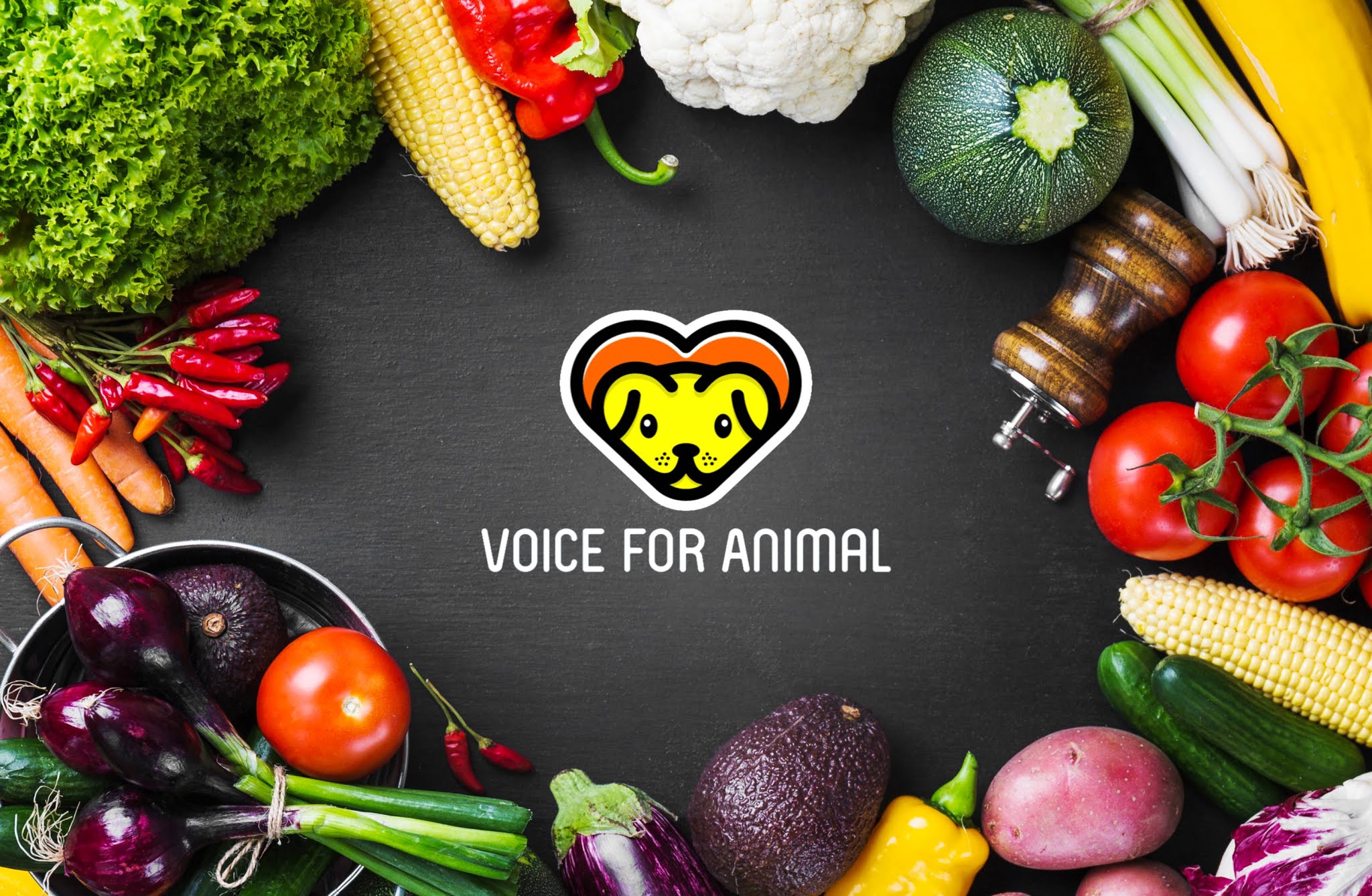Vegetarians (VEE-guns) are people who choose not to eat any animal products, including meat, eggs, dairy products, honey and gelatin. Most vegetarians also do not support industries that feature captive and / or performing animals, including circuses, zoos, and aquariums.
The American Vegetarian Society (2006) defines vegetarianism as “an advanced way of living according to the reverence of life, while recognizing the rights of all living things, and imparting compassion, kindness and justice embodied in the Golden Rule.”
The word vegan was derived from the word vegetarian in 1944 by Elsie Shrigley and Donald Watson, founders of the Vegetarian Society in the United Kingdom. Shrigley and Watson were disappointed that vegetarianism included the consumption of dairy products and eggs. They saw vegetarianism as “the beginning and end of vegetarianism,” and they used the first and last three letters of vegetarianism to coin the new term.
The “Vegetarian America in America” poll conducted by the Harris Office of Interactive Services in April 2008 indicated that 7.3 million American adults are vegetarians. Nearly a million of them are vegetarians.
The Mintel survey showed that US sales of plant and vegetarian foods increased by 64 percent from 2000 to 2005, and that the plant-based food market is expected to grow to more than $ 1.7 billion in sales by 2010. The increase is attributed to concerns about animal welfare. Personal health and / or the environment.
Ethical Reasons for Veganism
Nearly 27 billion cows, pigs, chickens, turkeys and other animals are killed for food every year in the United States, our modern plant-based farming system strives to produce the most meat, milk and eggs as quickly and at the lowest possible cost. How much space is possible.
Some people, such as the Nobel Prize-winning Jewish writer Isaac Bashevis Singer, have equated the treatment of animals in slaughterhouses with the treatment of humans during the Holocaust. After fleeing Nazi Europe in 1935, Singer took a room above a slaughterhouse and watched the cows being pushed, kicked and sworn in as they were being cut down a slope to their death.
There is evidence of cattle, chickens, pigs and other meat animals being raised in poor conditions, where they can be fed food in large quantities, such as grains, or substandard or inappropriate food. They are sometimes kept in very small spaces to raise as many animals as possible. Even more disturbing, there is evidence that animals in slaughterhouses are not always killed in human form, for example, when stun guns do not work. USDA inspection records documented 14 violations of human slaughter in a processing plant, including the finding of pigs that “were walking and screaming after being electrocuted [with a stun gun] four times” (Warrick, 2001). During slaughter, the animals are hung upside down and their throats cut, sometimes while they are still conscious. Many of them are still alive while being flogged, dismembered, or burned in feathering tanks.
A survey conducted in 2004 by the Social Responsibility Initiative at Ohio State University indicated that the majority of people, even those who are not vegetarians or vegans, are concerned about the well-being of farmed animals. The surveys were sent to 3,500 randomly selected people from Ohio, and 56 percent responded. Of the respondents, 92 percent agreed or strongly agreed that it is important to take good care of farm animals, 85 percent indicated that the quality of life of animals is important, although some animals are used to produce meat, and 81 percent said that the well-being of farm animals is just as important as the welfare of animals. Pet.
According to Mintel’s Eggs and Egg Substitutes – United States, June 2004, consumers interested in animal welfare are choosing to purchase eggs from hens that are not raised in cages. Vegetarians also believe that it is wrong for animals to use their milk or eggs. It is estimated that each vegetarian saves more than 100 animals each year.
Health Reasons for Veganism
Animal products, especially meat, eggs and dairy products, are high in saturated fats, cholesterol, and concentrated proteins. Several studies have linked the consumption of some animal products to serious diseases, such as heart disease, strokes, diabetes, breast, colon, prostate, stomach, esophagus and pancreatic cancer.
Unlike animal products, plant-based foods are cholesterol-free, generally low in fat, and rich in fiber, complex carbohydrates, and other vital nutrients. Researchers from the University of Toronto found that a vegetarian diet rich in soy and soluble fiber can reduce cholesterol levels by up to a third (Fauber, 2003).

Studies have shown that vegetarians and vegans are, on average, at least 10 percent less fat and live six to ten years longer than meat eaters. The ADA states that “vegetarians, especially vegetarians, often have weights closer to the desirable weights than non-vegetarians” (American Dietetic Association, 1993). In the book Dr. Spock’s Baby and Child Care, the late Dr. Benjamin Spock, in charge of childcare, wrote, “Babies who grow up and get their food from plant foods instead of meat have a tremendous health advantage. Spock, 1998). According to the ADA and dietitians in Canada, “Vegetarian diets and other types of vegetarian diets are suitable for all stages of the life cycle, including during pregnancy, lactation, lactation, childhood and adolescence” (ADA website). Most of the vital nutrients are from a vegetarian diet; however, since vitamin B12 is mainly found in animal sources, vegetarians need to take a multivitamin or vitamin B12 supplement to get an ample amount of vitamin B12. Vitamin B12 is also found in yeast. Nutritional, many grains and soy milk.
Environmental Reasons for Veganism
The process of converting cows, pigs, chickens and turkeys into meat, pork and poultry negatively impacts the environment. According to E: The Environmental Magazine, nearly every aspect of animal agriculture, from the loss of crop land and open spaces due to grazing, to the inefficiency of feeding massive amounts of water and grain for livestock in a hungry world, to pollution from factory farms, could spell disaster Environmental consequences sometimes dire (Motavalli, 2002). Livestock’s Long Shadow Report issued by the United Nations in November 2006 indicated that raising animals for food generates more greenhouse gas emissions than all the world’s cars, trucks, trains, ships and airplanes combined.
When Gedon Eshel and Pamela Martin of the University of Chicago compared the amount of fossil fuels needed to grow and process various foods, including operating machinery, providing food for animals and watering crops, they found that a typical American diet generates nearly 1.5 tons more carbon dioxide per person per year compared to the A vegetarian diet that contains an equal number of calories (New Scientist, 2005). The Environmental Protection Agency has reported that factory farms are polluting our waterways on a massive scale. Animals raised for food produce nearly 130 times the amount of excreta produced by the entire human population, 87,000 pounds per second (beta plant group). Cattle waste emits ammonia, nitrous oxide, carbon dioxide and other toxic chemicals into the atmosphere. A study by Duke University Medical Center showed that people who live downwind on pig farms are more likely to suffer from stress, depression, fatigue, nausea, vomiting, headache, shallow breathing, cough, sleep disturbances, and loss of appetite than the general population (Schiffman et al., 1995).
Raising animals for food requires huge amounts of water and land. It takes 2,500 gallons of water to produce a pound of meat, but only 60 gallons of water to produce a pound of wheat, and a meat-based diet requires more than 4,000 gallons of water per day, while a vegan diet requires only 300 gallons of water per day (Robins, 1987). Almost 3 1/4 acres of land are needed to produce carnivorous food; Vegetarian food can be produced on only 1/6 acre of land. In the United States, animals are fed more than 70 percent of the corn, wheat, and other grains we grow (PETA). The world’s livestock consumes nearly as much food as the caloric needs of 8.7 billion people; About 1.4 billion people can be fed grains and soybeans in the United States alone.



